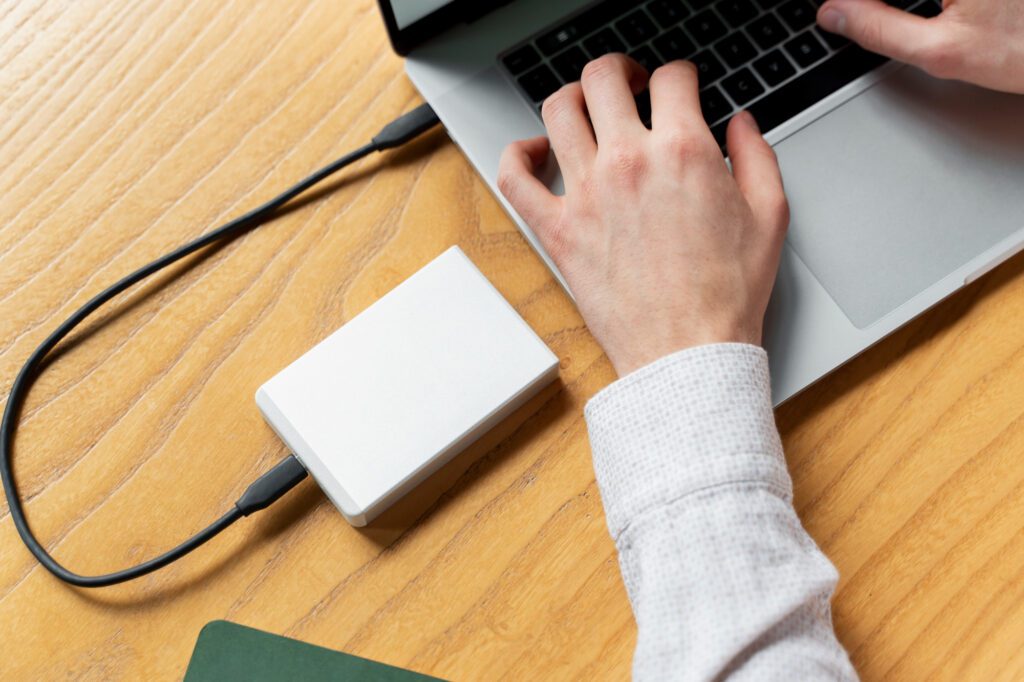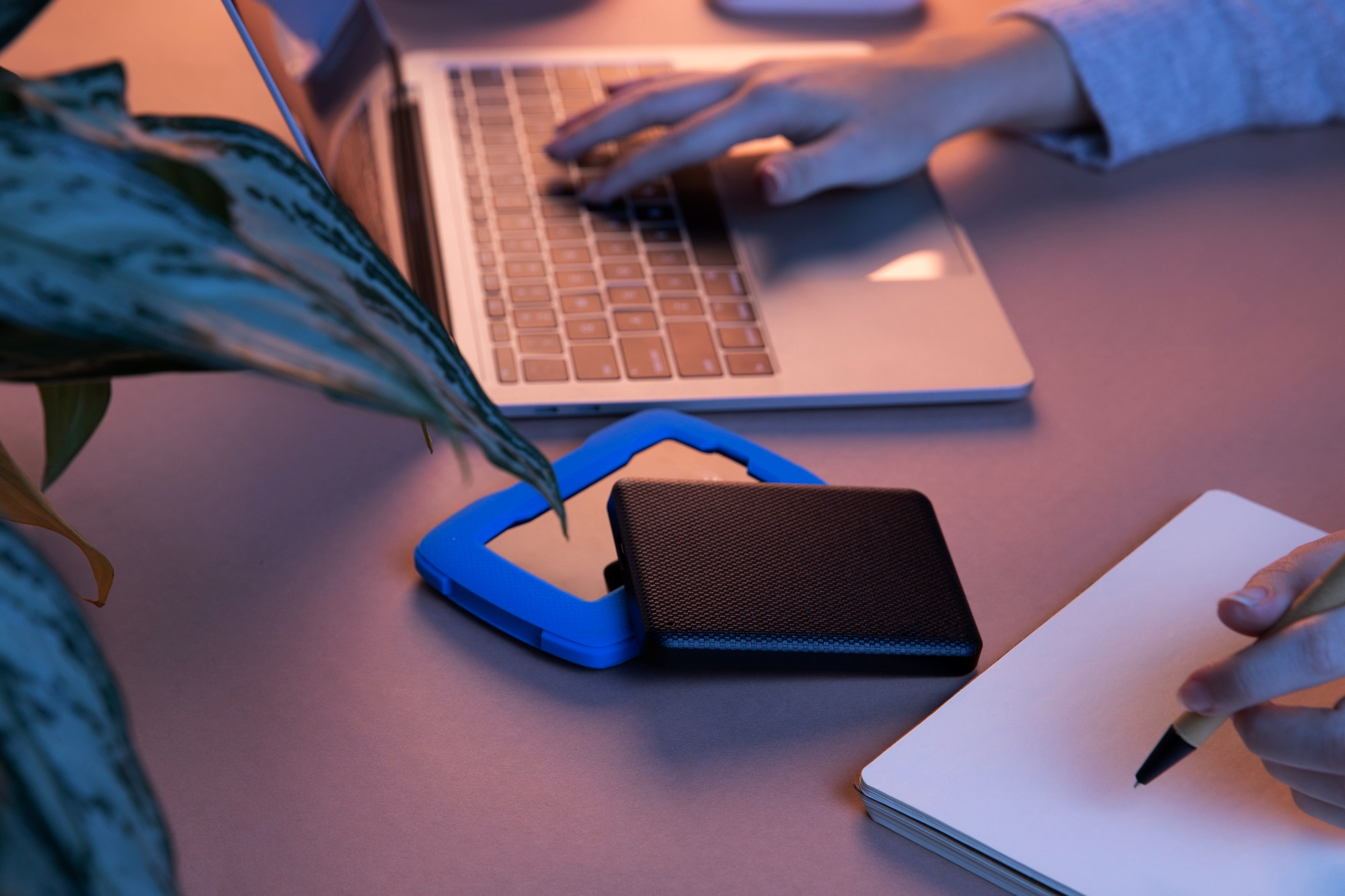Laptops are becoming a necessary tool in our life in the digital age, used for everything from work to play. Losing out of storage space is a problem a lot of laptop users encounter, though. Your laptop’s storage can get fast full of files, pictures, videos, and applications, which can make the device slow and ineffective. We’ll look at a number of methods in this post on how to get more storage on a laptop to help you increase the storage on your laptop so you can keep using it without worrying about running out of space.
Table of Contents
Lets Get The Answer for How to Get More Storage on a laptop with Benefits
Let’s quickly go over the reasons why having additional storage on your laptop is crucial before we get into the topic of how to get more storage on a laptop. More storage space has a number of advantages.
- Efficiency: Your laptop will function more quickly and smoothly with additional storage as it won’t have to work as hard to manage your files.
- Data Backup: You may reliably create a backup of your most crucial files, guaranteeing their safety and accessibility.
- Multimedia Storage: Don’t worry about running out of room to save your enormous collection of pictures, movies, and music.
- Application Installation : You can expand the software and programs on your laptop to increase its functionality.
- Future-Proofing: Adding more storage to your laptop helps it be ready for newer and more advanced technologies.
Evaluate Your Current Storage Situation
Start by determining how much storage and how often you use your laptop. To carry out this:
1. On your desktop, select “This PC” or “My Computer”.
2. Perform a right-click on the C: drive, which is the storage disk on your laptop.
3. To see the details of your storage, select “Properties”.
This will display the amount of space that is available and the amount that you are presently using.
Eliminate Superfluous Files and Programs
The easiest approach to the answer of how to get more storage on a laptop is to delete programs and files that aren’t needed. As follows:
1. Go through your files and remove anything you no longer require or duplicates.
2. Get rid of programs you don’t often use.
3. To get rid of deleted data forever, empty your recycle bin.
Utilize Cloud Storage Solutions

You can increase the amount of storage on your laptop without physically adding extra by using cloud storage. There are premium and free storage solutions available through services like Microsoft OneDrive, Dropbox, and Google Drive. Files can be uploaded and accessed from any internet-connected device.
Use an External Hard Drive
Purchasing an external hard drive is a sensible choice if you need more space for business or have a sizable collection of media files. You can use USB to link it to your laptop and move files around as needed.
Upgrade Your Internal Storage
If you need to improve your laptop’s storage significantly, think about getting an SSD (Solid-State Drive) or a larger internal hard drive. Compared to conventional hard drives, SSDs are more dependable and speedier.
How to Get More Storage On a Laptop By Selecting the Perfect HDD or SSD
Of course! Choosing the appropriate laptop hard drive or SSD (Solid-State Drive) is essential for increasing storage capacity. To assist you in making an informed decision in how to get more storage on a laptop, let’s go into the specifics.
Capacity

When selecting a storage drive, capacity—which is commonly expressed in gigabytes (GB) or terabytes (TB)—is one of the first factors to take into account. Your needs determine the capacity that is best for you. This is an explanation:
SSDs: SSDs come in a variety of capacities, ranging from 128GB to 4TB or more. A smaller SSD will work just fine if your laptop is only used for standard chores like web browsing and document editing. Choose a higher capacity, though, if you operate with a lot of data, like in media editing or gaming.
Hard Drives: Conventional hard drives often have larger capacities, typically 500GB to 12TB or higher. They are a great option if you need a lot of storage for backups, media libraries, or large amounts of data.
Speed and Performance

When it comes to your laptop’s performance, speed is everything. Think about the following when selecting the ideal drive:
SSDs: The speed of SSDs is well-known. Because they have fewer moving parts than conventional hard drives, they operate more faster. Because they offer almost instantaneous data access, laptop responsiveness is increased overall and boot and application launches occur more quickly.
Hard Drives: Because of their rotating disks, conventional hard drives are slower. They work well when storing data that isn’t performance-critical. But when it originates to both read and write operations, they are usually slower.
Reliability and Brand Reputation
Reliability is crucial while selecting a storage device. Don’t take a chance on losing your data because of a malfunctioning drive. Think about the following:
SSDs: Because SSDs don’t have any moving parts, they are typically more dependable. They are less vulnerable to impacts or shocks that could cause physical harm. Look for reliable brands with a solid track record when selecting an SSD.
Hard Drives: Because of their rotating disks, conventional hard drives are more prone to physical harm. It’s imperative that you treat them carefully. Choose a reputable brand after doing your homework for increased dependability.
Compatibility with Your Laptop

Verify that the storage drive is suitable with your laptop before making a purchase. Think about these elements:
Actual Size: The actual size of storage disks may vary depending on the laptop. Hard drive sizes that are most frequently used are 2.5 and 3.5 inches, whereas SSDs come in a variety of form factors. Verify the characteristics of your laptop to ascertain the appropriate size.
Interface: Verify that the drive you select is compatible with the interface on your laptop. For SSDs, common interfaces include SATA and M.2, while for hard drives, they are SATA or IDE. Make sure the selected interface is supported by your laptop.
Connection: Verify that the storage disk and your laptop are able to connect. While older laptops might feature IDE or other types of hard drive ports, most recent laptops have SATA or M.2 connections for SSDs.
Capacity, performance, dependability, and compatibility must all be carefully considered when selecting the best hard drive or SSD for your laptop. To make an informed choice, consider your budget, needs, and the specifications of the laptop. The performance and usability of your laptop can be greatly improved by making the appropriate storage disk purchase.
Steps to Upgrade Your Laptop’s Storage

To upgrade the storage on your laptop, follow these steps:
1. Make a backup of your data to the cloud or an external storage.
2. Get the new storage gadget.
3. Slide open the laptop’s casing to reveal the installed hard disk.
4. Gently take out the old drive and install the new one.
5. Reassemble your laptop securely.
Tricks On How to Get More Storage On a Laptop by Migrating Data
You will need to move your data to the new storage after upgrading. To do this, you can:
1. Using your external backup to restore your data.
2. Reinstalling the programs you use.
3. Duplicating any leftover files.
Tips for Maintaining Your Laptop’s Storage

You need to manage your storage effectively if you want your laptop to function properly. File accumulation over time might result in a jumbled and untidy storage area, which can affect the functionality of your laptop. The following are comprehensive guidelines for maintaining the storage on your laptop:
1. Routine File Cleaning: – Regularly going through your files and getting rid of stuff you don’t need is a healthy habit. This includes duplicate files, outdated papers, and stuff you’ve downloaded but aren’t using. A substantial amount of space can be freed up by removing these pointless files.
2. Arrange Your Files: – Take into account establishing an orderly file system. Sort your files into subfolders and folders to facilitate finding what you need. Organizing your files into categories is another way to cut down on clutter.
3. Make Use of Disk Cleaning Tools: Disk cleaning utilities are included into the majority of operating systems. With the use of these programs, you can locate and get rid of system cache, temporary files, and other junk material that builds up over time. Periodically using these techniques can help you regain important storage space.
4. Remove Superfluous Applications: You could amass software and programs over time that you are no longer using. Removing these programs can enhance your laptop’s performance in addition to freeing up storage. To remove programs that you no longer require, go to the settings or control panel on your laptop.
5. Monitor Available Storage: – Pay attention to the amount of storage on your laptop. Check your remaining space on a regular basis and take actions when it’s becoming low. By being proactive, you may take care of storage problems before they get out of hand.
6. Compress enormous Files: You might think about compressing enormous files into ZIP files if you need to maintain them but don’t use them often. By doing this, they take up less space without sacrificing the data.
7. Transfer Files to an External Drive: Use external hard disks or USB drives as storage options for files you wish to maintain but don’t require in the computer all the time. Large documents, archives, and media files can all benefit greatly from this.
8. Make Use of Cloud Storage: Keeping data online and making them available from any device with an internet connection is a useful use for cloud storage services like Google Drive, Dropbox, or OneDrive. You may increase your storage capacity and have a safe backup using cloud storage.
9. Clear Out Your Recycling Bin: – On a laptop, files that you delete are frequently relocated to the recycle bin. To permanently remove these documents and free up storage space, it is imperative that you empty the recycle bin on a regular basis.
10. Set up the tools for the disk space analyzer: Installing third-party disk space analyzer programs will allow you to see which files and folders use up the most space on your storage and give you a visual depiction of it. It helps you identify what needs to be cleaned up.
You may keep your laptop running efficiently, keep its storage from getting congested, and maintain its storage by paying attention to these pointers. Frequent upkeep increases performance and prolongs the life of the storage components of your laptop.
Future-Proofing Your Laptop’s Storage
Your storage needs will also change as technology advances. Be proactive by:
– Making a greater storage purchase.
– Taking into account cloud storage for adaptability.
– Monitoring new developments in storage technologies.
Conclusion
To sum up, keeping your laptop’s storage full is essential to both its functionality and your output. You may take care of your laptop’s storage problems now and in the future by following the instructions provided in this article. Get additional storage on your laptop right now to avoid letting a lack of space hold you back! As till now you must have got the answer for how to get more storage on a laptop. All the best!
Frequently Asked Questions

1. How can I check my laptop’s current storage capacity?
A) To view the current amount of storage on your laptop, click “This PC” or “My Computer” on the desktop, then right-click on your storage drive and choose “Properties.”
2. Are SSDs better than traditional hard drives for laptop storage?
A) Indeed, compared to conventional hard drives, SSDs are quicker and more dependable. They are a great option if you want to increase the storage on your laptop.
3. Can I use multiple cloud storage services on my laptop?
A) Yes, you can increase the amount of storage on your laptop by using several cloud storage services at once.
4. How often should I clean and organize my laptop’s files?
A) To avoid clutter, regularly clean and arrange the files on your laptop. Aim for a once-a-month tidy up to keep storage space at its best.
5. What is the best way to back up my data before upgrading my laptop’s storage?
A) Using a dependable cloud storage service or an external hard drive is the best option to backup your data before updating. Before making any modifications, make sure any crucial data are kept in a secure location.

